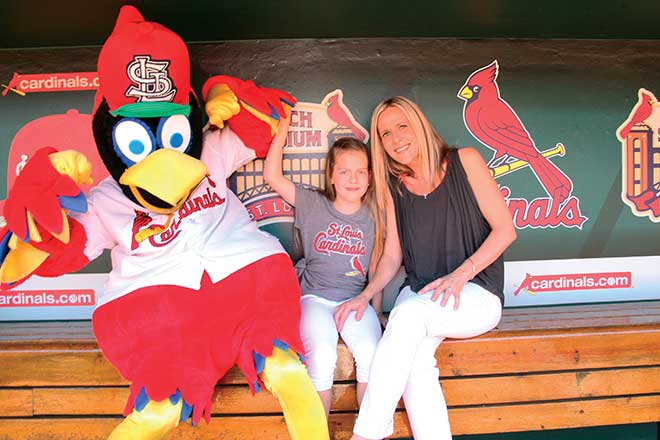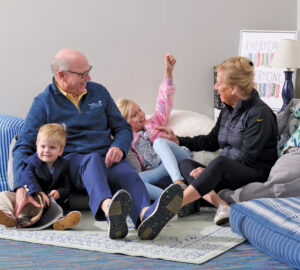A mother usually knows when something is wrong with her child. Raquel was just 4 years old when she was diagnosed with juvenile onset diabetes. Soon afterward, she began losing her sight. “We were told she had severe optic atrophy, which is unusual in such a young child,” recalls her mom, Stephanie Snow Gebel. When MRIs and brain scans failed to find the underlying problem, genetic testing finally revealed the cause: Raquel’s diabetes and vision defects were manifestations of Wolfram syndrome, a rare disease that destroys nerve cells in the pancreas, eyes, ears and ultimately the brain.
Gebel listened in shock while the doctor said there was no cure or treatment for the disease. His next words pierced her heart: About 60 percent of Wolfram syndrome patients die before age 30. “I could barely breathe,” she recalls. “It was like hearing my daughter’s death sentence.” Unable to stand by while her child deteriorated, Gebel decided to help other families who are going through the same ordeal. With support from her brother, former San Francisco Giants first baseman J.T. Snow, she established Snow Foundation. “We fund cutting-edge research, help patients and families dealing with Wolfram syndrome, and raise awareness among physicians and the general public,” Gebel explains.
Barely five years after her initial diagnosis, Raquel is now legally blind. She also suffers from bladder problems and sometimes chokes on her food. “There is no happy ending to this story,” says Dr. Saad Naseer, CEO and chief medical officer of The Snow Foundation. “Unless we find a way to halt the progression of this disease, Raquel and approximately 20,000 other children and young people with Wolfram’s will lose their sight and hearing, suffer from muscle spasms, seizures and incontinence, and eventually lose brain function and the ability to breathe.”
Since Wolfram’s doesn’t affect as many people as heart disease or cancer, it doesn’t receive significant funding from the government and pharmaceutical companies. “And that’s a tragedy, because research on rare diseases often leads to a better understanding of other, more common diseases,” Naseer notes. Collaborative international research efforts, particularly those led by Dr. Fumihiko Urano at Washington University School of Medicine, are on the verge of developing two breakthrough therapies for Wolfram’s, but clinical trials are needed. “These drugs also could benefit individuals with diabetes, as well as Parkinson’s and Alzheimer’s diseases.”
Wolfram syndrome is hard to diagnose. Many physicians don’t even know it exists. “We’re trying to spread the word,” Gebel says. In honor of Raquel and other kids with Wolfram’s, Aug. 17 has been designated Wolfram Syndrome Day at Busch Stadium. The St. Louis Cardinals will play the San Francisco Giants, reigning World Series champs. “The more we know about Wolfram’s, the faster we’ll find a way to treat it, and the more we’ll learn about other neurological disorders,” Gebel says. “Please join us Aug. 17. Help my child and other children lead longer, healthier lives.”
Pictured: Fredbird, Raquel Gebel and Stephanie Snow Gebel
Photo: Bill Stover
[Wolfram Syndrome Day, presented by the Snow Foundation, takes place Aug. 17 at Busch Stadium. For tickets, field passes to watch batting practice, and an exclusive opportunity to throw out the first pitch at Busch Stadium on Aug. 17 when the Cardinals take on the Giants, call 636.448.4134 or visit thesnowfoundation.org.]








